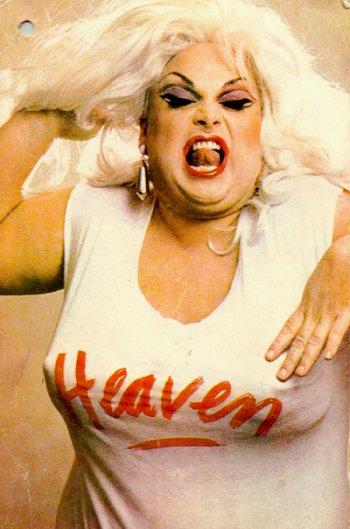It’s two years too late to consider the reductionist make-over of the Ursula doll in the Disney Villains collection “news”. But it was news to me. I learned about it from a fat-abulous performance poem by Melissa May. The poem “Dear Ursula” is an open letter to the character from Disney’s The Little Mermaid. You can watch the clip below of May performing it at the 2014 Women of the World Poetry Slam.
You can read the outrage when the news was fresh (though the concept of thin as beautiful was still old and cliche then) in articles like this one at Tor. In the July 2012 article, Poor Unfortunate Souls: Why Does “Fashionable” Equal “Thin” to Disney?, author Emily Asher-Perrin asks the right questions. In response to the official statement
“The Disney Villains Designer Collection is a unique, stylized and fashion-forward take on these iconic characters.” – John Balen, Disney Store director.
Asher-Perrin asks
By “stylized,” you mean “unrecognizable,” right Disney?
Unrecognizable is the only word for her/not her. That is not Ursula. It just isn’t. As irritated and angry and sad and unsurprising as the erasure of women of size is in general, this one hit me particularly. Not because I’m a Little Mermaid fan. I’m not.
I like mermaids and I like redheads and I have nothing against singing crustaceans. I’m not big on the one true love and you’re nothing without your man stories and I really hate them as propaganda um, entertainment, for children. But what bugged me about this one was the happy ending slapped over the original.
In case the only version you know is the one with the date-rapey fish singing “kiss the girl”, in the original story by Hans Christian Anderson the mermaid did not get her man. And the deal was if she couldn’t make him love her, she would die. But he fell in love with someone else and the mermaid’s sisters made a pact with the sea-witch for a magic knife and if “Ariel” killed her prince instead she’d live and could return to the sea. But she decided she’d rather die, and let him live happily without her, even though he’d know nothing of her sacrifice.
Put a little salsa music behind that punchline.
More than a sad little story about a sad little mermaid, this was a story about Anderson. Hans Christian Anderson was the little mermaid. He was an unhappy gay man who loved men who didn’t love him back and he wrote passionate letters to those men saying “she will never love you like I do”. His stories are fiercely bleak and full of noble, young women who are constantly dying. But nobly. Those stories have lasted generations. To me they are a strange patchwork of writing and queerness and surviving or not.
Which brings me back to Ursula. That simple fat beautiful drawing of an octopus-woman-sea-witch-goddess is based on a real complex fat beautiful person. A drag queen called “Divine”. He died in 1988 before the movie was finished but Ursula is Divine. An extra wrinkle in the historical queer tapestry of this mermaid’s tale.
So Disney, we love Ursula. Big and bad and unapologetic. Disney, can you capitalize on that love and sell us back something smaller, straighter, thinner and tell us it’s prettier? Tell us it’s fashionable. One lie at a time. One more erasure. Thin out the truth. Change a little. Change a lot. Tell us it’s what we really want. All the same figure, the same doll, the same story. Put a chorus line behind it. Maybe some singing mice.
